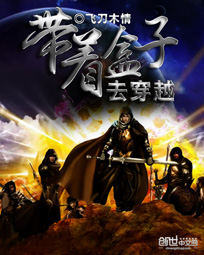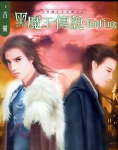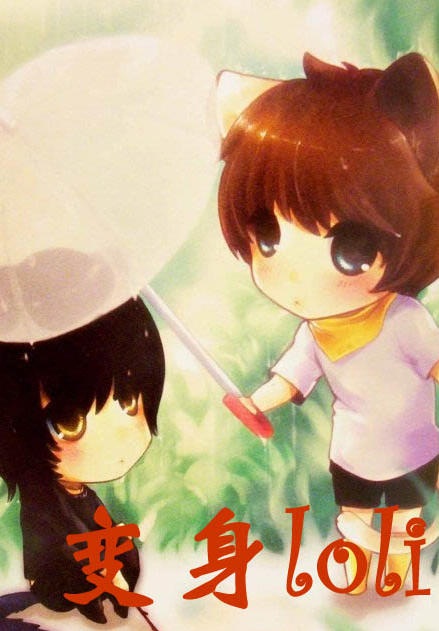wgolding.lordoftheflies-第62部分
按键盘上方向键 ← 或 → 可快速上下翻页,按键盘上的 Enter 键可回到本书目录页,按键盘上方向键 ↑ 可回到本页顶部!
————未阅读完?加入书签已便下次继续阅读!
lar〃 and 〃steadfast〃 to describe the constellations。 If William Golding's universe is 〃a cruel and irrational chaos;〃 he has certainly chosen most inappropriate words to describe it。
Basically; it seems to me; the real difficulty with the interpretation of Lord of the Flies offered by Fr。 Egan and Mr。 Kearns is its failure to treat the novel as a whole。 William Golding's novel is not antihuman; it is anti…Rousseau。 It does not portray human nature as such; it presents human nature as infected with the romantic chimera of inevitable human progress; a progress which will be achieved because of the innate nobility and innocence of the human species。 In theological terms; which are perhaps the most accurate critical tools for explaining this novel; Lord of the Flies is not so much Manichean as it is anti…Pelagian。 A more detailed analysis should help to show this anti…Pelagian character of the work。
Lord of the Flies begins with all the paraphernalia of the romantic; and sentimental; preconceptions that owe so much to Rousseau's social philosophy。 In the first chapter we are presented with a group of children; the contemporary world's symbol of innocence。 They are placed on a tropical island; an earthly paradise; Rousseau's habitat for the 〃noble savage。〃 But these boys are not Adam…figures; they are not innocent。 Each of them; in varying degrees; reflects the influence of the serpent…which; by the way; is introduced in the first chapter when Ralph unfastens 〃the snake…clasp of his belt。〃 Here begins the terrible irony that runs through the whole novel。 Romantic man thinks he can rid himself of evil merely by taking off his clothes; the symbol of civilization and its effects。
In this superficially idyllic munity; made up of refugees from an atomic war; we discover Golding's four major characters: Ralph; Piggy; Jack and Simon。 It is with these characters that Golding's symbolism bees somewhat more plex than either Mr。 Keams or Fr。 Egan suggests。 Lord of the Flies is essentially a fable about contemporary man and contemporary ideas。 Thus; Ralph is not only the symbol of the decent; sensible parliamentarian; he is also me figure of an idea: the abstract concept of democratic government。 The same double role is filled by the other characters: Jack is at once the dictator and the concept of dictatorship; Piggy is the intellectual; with all his powers and deficiencies; and representative of the Enlightenment or scientific method。 Finally; Simon is the mystic and poet; who is also a Christ…figure and thus the symbol of religious faith。 The symbolism of Lord of the Flies; therefore; functions on a number of levels; and it seems to be an injustice to Golding's extraordinary dexterity in handling these multiple levels to reduce them to one level; that of universal human nature。
Golding suggests the plexity of these symbolic figures in their physical descriptions。 Ralph is 〃the boy with fair hair 'who has' a mildness about his mouth and eyes that proclaimed no devil。〃 On the literal level we have the good boy; the 〃solid citizen。〃 As such; Ralph engages our sympathies。 And on the most obvious symbolic level he still has our sympathies; for he represents the decent; sensible parliamentarian; the political ideal of the Western world。
But on another; and deeper; level Golding has introduced an ironic twist。 The symbolic value Ralph possesses as the abstract concept of the democratic process is presented as a challenge to the reader。 If; as the Western world seems to believe; the democratic process of government is the best devised by man throughout his history; why doesn't it work always and everywhere? It is at this level that Golding suggests symbolically the inadequacy; not the depravity; of the solely human; it is at this level that he directs his devastatingly ironic mentary on the Rousseauvian myth of the general will and its unproved presupposition of the natural goodness of the human species。
In effect; Golding's modern fable puts Rousseau's social contract to the test: Lord of the Flies takes man back to the primitive condition of things; which the French social reformer had advocated as the one sure way of restoring man to his proper dignity。 Then it shows that; far from being naturally good; man has some type of defect for which civilization is not responsible。 Rousseau's social philosophy fails the test; and the essentially confused notion of nature which Rousseau bequeathed to the contemporary world is exposed for the fraud that it is。
Moreover; the irony implicit in Ralph's inadequacy is extended to the other characters; either as they participate in the same inadequacy or as they question symbolically the solution offered for human ills by Ralph's faith in Rousseauvian democracy。 Piggy participates in the 〃grand design〃 of restoration。 As a figure of the Enlightenment; he cannot accept the extremes of romanticism; and he votes for Ralph only 〃grudgingly〃; but he will use the more popular romantic concept of government and will try to direct ft。 Yet; even with his discerning rational assessment of the problem of forming a government for the refugees; his inherent weaknesses are evident Ultimately; he is destroyed; not because his intellectual gifts are depraved; but because he falls into the mistaken belief that they are sufficient unto themselves。 Piggy is intelligent enough; for example; to question Ralph's blind faith in rescue by the military (a scathing mentary on the Western democracies' current worship at the shrine of Cape Canaveral); but he remains blind to the limitations of his own reason。
Jack and Simon; on the other hand; are not taken in by the Rousseauvian solution。 Jack's approach to the human condition is much too twisted for even the remotest parison with the idealism; fanciful though it is; implicit in Rousseau; Simon's view of humanity is so penetrated with realistic self…appraisal that he transcends the idealism of the French reformer。 Jack descends to the subhuman; Simon soars to the superhuman。 While Ralph and Piggy exemplify ironically the 〃noble savage;〃 Jack and Simon provide the necessary counterpoint; Jack exploits the savagery; and Simon explores the nobility。
And it is probably through the figure of Jack that William Golding pronounces his severest condemnation of the romantic myth of human progress。 For; in the last analysis; it is the dictator who has benefited most from Rousseau's social view。 When man's efforts toward progress and eventual fulfillment; however altruistic his motivation; proceed from sloppy thinking; then brute force takes over to direct the course of progress and subverts even the good in human nature to its own destructive ends。
Yet; Golding is not interested merely in the altruism or the subversion; between these two forces in contemporary civilization he places the figure of Simon。 He introduces him to the reader in somewhat melodramatic fashion: the boy faints。 In this; the first of Simon's actions; we have a possible ironic twist on Swinburne's famous line: 〃Thou hast conquer'd; O pale Galilean; the world has grown gray from thy breath。〃 It is obvious from Simon's subsequent history that he is a Christ…figure; and the romantic view of
humanity proposed by Rousseau has so infiltrated every aspect of life in the contemporary world that even Christ is seen through the rose…colored glasses of sentimentality; which is the logical and real successor to romanticism。
Thus; the Christ of Lord of the Flies is the 〃pale Galilean〃; yet it is this same weak Christ who; in the first act he performs; forces a concession from Jack; and the choir boys are allowed to rest The irony is evident: even a weak Christ is more than a strong dictator。4 Further; when Simon announces his name (and his name has the strongest biblical overtones); Jack says: 〃We've got to decide about being rescued。〃 Immediately; Simon is linked; however vaguely; with the idea of salvation。
After the boys have elected Ralph as leader by 〃this toy of voting;〃 Jack; Simon and Ralph begin exploring the mountain。 This section of the novel is crucial; for it is here that Golding gives his abbreviated ironical summary of the romantic view of human progress。 The passage needs analysis


![[LOL]爱的双排封面](http://www.9wshu.net/cover/12/12832.jpg)



